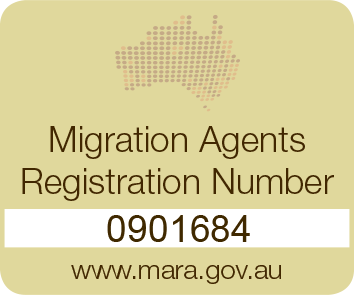In this week’s blog post we will take a look at what your options are if you and your partner have ended your relationship.
- Know your rights!
- Understand that your ex-partner cannot cancel your visa – only the Dept of Home Affairs has this power.
- Always respond to any correspondence from the Dept of Home Affairs.
- Consider other visa options if necessary.
- If you’re a victim of domestic violence whilst you are still in your relationship, your Permanent Partner visa may still be granted.
- An Australian child of the relationship may also lead to Permanent Partner grant.
- If your partner has died, you may still be eligible for a Permanent Partner Visa grant.
In this article, we will assume that you have already been:
- Granted your Offshore Subclass 309 Provisional Partner Visa, or
- Granted your Onshore Subclass 820 Provisional Partner Visa, or
- You are waiting for a Subclass 820 Onshore Provisional Partner Visa to be granted, and…
Your relationship has ended as a result of irreconcilable differences between your ex-partner and yourself, domestic violence or the death of your partner.
Your relationship has ended, what happens now?
If you’re the holder of a Provisional Partner Visa or you are waiting for it to be granted, it can become a nightmare if your relationship has broken down, especially if your ex-partner is threatening to have your Partner Visa cancelled, or the application withdrawn.
It doesn’t matter whether the relationship that has ended is a de-facto relationship or a marriage, the advice is the same, and even if you have not divorced, the relationship will be deemed to be ended by the DHA, if you and your partner have parted ways permanently.
It is really important that you knows your rights!
Your ex-partner can’t cancel your visa!
At least once a week we receive a call from a distressed person telling us their partner who has sponsored them for a Partner Visa has told them he/she is going to “cancel their visa”.
The only person that can cancel or refuse your visa, is a case officer or so called “Delegate” of the Minister for Immigration. Your ex partner cannot cancel your visa themselves.
If your partner tells the DHA your relationship has ended, expect a letter from them.
If your ex-partner informs the Department of Home Affairs (DHA), that your relationship has broken down, you will eventually receive a letter (usually via email) from a Delegate asking you to comment on the information it has received that your relationship has broken down.
It often takes weeks to receive this letter – in fact some of our clients have waited months.
The letter will allow you 28 days to respond to the allegations that your relationship has ended. This means that you have at least 4 weeks to consider your options and draft a response to the Department.
Sometimes other people make a report to the DHA that your relationship has ended!
We have had several clients over the years who have received a DHA “please explain” letter after some anonymous person has reported ( or “dobbed in” as we say in Australia) that a couple is no longer together.
Often these are malicious reports by nasty people, but you will still receive a letter from the DHA (which will never disclose the source of the report) – and they will proceed to refuse your visa application or cancel your Partner Visa if you do not respond to the allegations.
You must respond to the letter you receive from the DHA.
If your relationship has broken down permanently and you do not have children together, and there are no allegations of domestic violence, the DHA will eventually refuse your Subclass 820 Provisional Partner Visa, cancel your Provisional Partner Visa (either Subclass 820 or 309), or refuse your Permanent Partner visa, if you have applied for the second stage.
In this situation, if you want to continue living in Australia, use the time available to you to find out if you can apply for a different Australian visa before you respond to the letter.
Take your time – you have 28 days to respond remember!
If you respond stating that your relationship has broken down and there are no extenuating circumstances (see below), it is probably best if you wait until you are nearly at the end of the 28 day response period to respond – this way, you will have the maximum amount of time up your sleeve to make alternate plans or apply for another visa.
If you reply at any time before the end of the 28 day period, the DHA can cancel your Provisional Partner Visa, or alternatively refuse your Provisional or Permanent Partner Visa application as soon as you provide your response.
If you take longer than 28 days to respond – or you don’t respond at all, the DHA can refuse your visa or cancel your visa without further notice.
If you are unsure about what to do contact us or book a consultation online.
Are you the victim of a malicious and untrue report that your relationship is not ongoing?
If you’re a victim of malicious reporting and your relationship is still ongoing despite the report to the contrary, you must respond to the DHA letter. Explain that your relationship is sound, and provide updated evidence to prove it, such as statutory Declarations from yourself and your partner,
Case Study
We had a client and her partner whose grandmother reported that they were no longer together – apparently she didn’t like the partner and wanted him out of the country! We responded to the Dept letter on their behalf together with appropriate evidence that the relationship was ongoing, and their Partner Visa application was granted.
Exemptions …. Situations where your Partner Visa may not be cancelled or refused.
There are cases in which you may still be granted your Provisional or Permanent Partner Visa after your relationship has ended.
These include:
- You or a dependent family member (i.e. a child) has suffered family violence brought about by your former partner, or
- You have an Australian child of the relationship.
- Where your spouse or de facto partner has died.
Family Violence
Domestic violence is a scourge, and if you find yourself exposed to it, we urge you to remove yourself from it immediately.
1800 RESPECT is a free, over-the-phone counselling service funded by the Australian Government’s Department of Social Services. It is confidential and available 24/7.
If you have suffered family violence, your Permanent Partner Visa may still be granted.
If you are a victim of family violence, and have the evidence to prove it, the DHA may still grant your Permanent Partner Visa, even if your relationship has ended.
If you have applied for an onshore Subclass 820 Visa, or hold an 820 Visa, your Permanent Partner Subclass 801 visa may be granted if you can establish a claim for domestic violence.
If however you are offshore and your Subclass 309 has not been granted, it will not be granted even if you can establish a claim of domestic violence.
If you are in Australia as the holder of a Subclass 309 visa, and you are waiting for the Permanent Partner Visa – Subclass 100, your visa may be granted if you can establish a domestic violence claim.
It is important to note that the domestic violence that you allege must have occurred before your relationship ended. If it occurred after your relationship ended, it is not relevant and the visa will not be granted.
Responding to the DHA letter – Allegations of Domestic Violence.
When you receive the letter from the DHA asking you to respond to adverse information it has received that your relationship is no longer ongoing, you must respond to it, as stated above within 28 days.
If you intend to allege that you are a victim of domestic violence, you must state that in your response – ie ‘yes my relationship has ended but I have suffered domestic violence at the hands of my ex-partner”.
Once you inform the DHA of this, it will write back to you requesting evidence of the domestic violence you allege.
The evidence needed for a claim of family violence is prescribed by the Minister.
The Minister prescribes mandatory evidence that is required to establish a claim of family violence.
The types of evidence prescribed can be categorised into “judicial” and “non-judicial” evidence.
Judicial evidence
Judicial evidence includes, court orders, police reports and apprehended violence orders (AVOs).
Non-judicial evidence
Non-judicial evidence includes medical or hospital reports and/or social work and psychologist reports, which must be drafted in a particular format. For example, a psychologist or social worker’s report must be drafted as a Statutory Declaration.
These reports should confirm that you and/or your dependents have sustained physical or psychological injuries as a result of domestic violence initiated by your ex partner while you were still in a relationship.
It is important to keep in mind that, that if you intend to make a claim of family violence, that you seek professional help to gather the requisite evidence required.
Case Study
Our client (let’s call her Suzie), contacted us in a terrified and injured state. She had applied for an onshore Partner Visa, Subclass 820.
Suzie had been subjected to violence and abuse by her partner, who was also her sponsor for a partner visa.
After ensuring she was safe, we assisted her to gather the appropriate evidence to support a claim for domestic violence. He evidence consisted of police reports, court orders and a hospital report.
After a very short period of time Suzie was granted her Permanent Partner visa.
What if my ex-partner and I have Australian children together and we have broken up?
If you have dependent Australian children of the relationship, and can establish that you have parental rights, or are responsible for the financial support of the children, you may be granted a Provisional or Permanent Partner Visa on this basis even where the relationship has broken down.
Where the father of the child (or children) is the visa applicant, the DHA delegate is likely to require the following evidence:
- Birth certificate of the child naming the visa applicant as the father
- Family court orders with respect to parental rights and/or financial aspects of the child’s care.
As with domestic violence the provisions for a visa grant where there are children apply to onshore Subclass 820 and Subclass 801 applicants and onshore Subclass 100 Permanent Partner Visa applicants – that is Subclass 309 Visa holders.
Case study
Our client (let’s call him Fred) had a child with his partner after lodging a Provisional Partner (Subclass 820) application. Unfortunately, before the Subclass 820 visa was granted, the relationship ended.
We informed the department and requested that the Permanent Partner Visa (Subclass 80) was granted on the basis there was an Australian child of the relationship.
After a request for Family Court orders for the child was met, our client was immediately granted his Permanent Partner visa and is now happily an Australian citizen (who as a bonus has an excellent relationship with his child).
My partner (or husband) has died. What are my options now?
If your partner has died and you have evidence that your relationship would have continued if the death had not occurred, the DHA will grant you a Permanent Partner Visa.
In keeping with the provisions for relationship breakdowns where there are Australian children or domestic violence allegations, Permanent Partner Visa grants are only available to Subclass 820 and Subclass 801 (Onshore partner visas) and Subclass 309 (Offshore Provisional Partner) visa holders .
Case Study
Our client (let’s call him Dave) applied for a Provisional Partner Visa (Subclass 820). His wife, and Irish citizen who was an Australian Permanent Resident was tragically killed in a car accident during the visa processing period.
Once we informed the DHA of the tragedy and provided evidence that the relationship was ongoing at the time of his wife’s death, Dave was granted a Permanent Partner Visa.
What next?
While the situations listed above are sadly quite common, please keep in mind that your situation may be different, as we cannot possibly include all the scenarios that may need to be taken into account in a short article such as this.
To find answers to more frequently asked visa questions or to have your individual situation assessed by an experienced and expert Migration Consultant , please contact us on 1300 887 818, or Book a Partner Visa Consultation here.
Take advantage of our Partner Visa immigration knowledge and experience – together we have over 40 years of experience, and we have lodged thousands of Partner Visas – from the straightforward ones to the extremely complex. We can also advise you about Partner Visa refusals and run your appeal for you.
And don’t forget our Partner Visa Guarantee, and our ability to refer you to our Independent Loan advisers if you need a loan to lodge your Partner Visa application.
Australian Partner Visas
Australian visa applications and Substantial Criminal Records. Do you have one? What can you do about it?

 Points Test
Points Test
 Book Now
Book Now 


